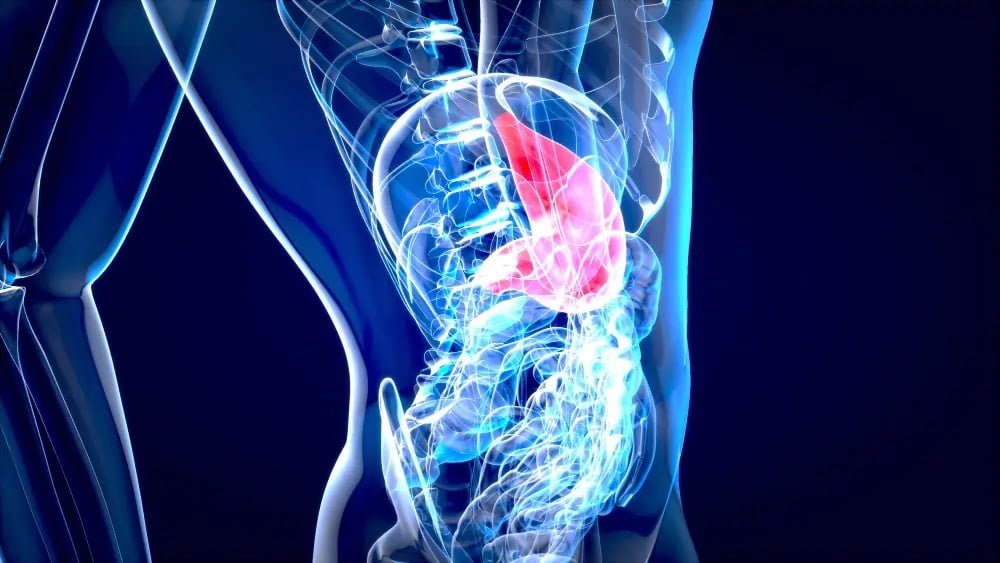The battle against cancer starts with awareness and early detection. When it comes to colon cancer, recognizing the warning signs is crucial for timely intervention and successful treatment. In this article, we will discuss the five key signs of colon cancer that you should never ignore. By familiarizing yourself with these indicators, you can take charge of your health and potentially save your life.
Introduction
The importance of early detection of colon cancer cannot be stressed enough. According to medical experts, routine screening and a vigilant eye for potential warning signs can significantly improve survival rates. By understanding the signs and symptoms of colon cancer, you empower yourself to make informed decisions about your health. Let’s dive into the details.
Understanding Colon Cancer
Colon cancer, also known as colorectal cancer, originates in the colon, which is the first and longest part of the large intestine. The large intestine, as part of the digestive system, is responsible for breaking down food to nourish the body. In the case of colon cancer, abnormal cell growth occurs in the colon, usually starting as noncancerous polyps. Over time, some of these polyps can develop into cancerous tumors.
Symptoms of Colon Cancer
Recognizing the early signs of colon cancer can be challenging, as they often overlap with other less severe conditions. However, paying attention to the following five key signs can help you identify potential issues and take appropriate action.
Unexplained Weight Loss
Weight loss is often celebrated, but if you’re shedding pounds without trying, it could indicate a problem. Unexplained weight loss of more than a few pounds can be a red flag for many health issues, including colon cancer. When cancerous cells multiply in the colon, they consume energy and nutrients, leading to unintentional weight loss.
Changes in Bowel Habits
Our bowel habits can vary from person to person, but sudden and persistent changes are worth investigating. Look out for persistent diarrhea, constipation, or a noticeable change in the consistency or shape of your stool. These changes could be related to disruptions in the colon caused by tumors.
Blood in Stool
Perhaps one of the most apparent signs of colon cancer is blood in the stool. While it may be alarming, it doesn’t automatically mean you have cancer. Blood can appear bright red or as a dark, tarry stool. Regardless, any presence of blood in your stool should be evaluated by a healthcare professional.
Abdominal Pain and Cramping
Occasional stomach aches are normal, but persistent abdominal pain or cramping could be a warning sign of colon cancer. These pains may be accompanied by bloating, gas, and a feeling of fullness. If you experience these symptoms for an extended period, it’s time to consult a healthcare provider.
Fatigue and Weakness
Colon cancer can cause unexplained fatigue and weakness even after getting enough rest. The malignant tumors in the colon disrupt the normal absorption of iron and other vital nutrients, leading to tiredness and lack of energy. If you feel chronically fatigued, it’s worth investigating the underlying cause.
Potential Causes of Colon Cancer
While the exact cause of colon cancer remains uncertain, certain risk factors have been identified, including:
· Age: While colon cancer can occur at any age, the majority of cases are diagnosed in individuals aged 50 or older.
· Race: Black individuals in the United States have a higher risk of developing colon cancer compared to other racial groups.
· Personal or family history: Individuals who have had colon cancer or polyps in the past are at an increased risk of developing colon cancer.
· Inflammatory bowel diseases: Chronic inflammation of the intestines, such as ulcerative colitis or Crohn’s disease, can elevate the risk of colon cancer.
· Inherited syndromes: Some genetic syndromes, such as familial adenomatous polyposis and Lynch syndrome, raise the risk of colon cancer.
· Unhealthy lifestyle factors: Factors such as a low-fiber, high-fat diet, sedentary lifestyle, obesity, smoking, excessive alcohol consumption, and diabetes have been associated with an increased risk of colon cancer.
· Radiation therapy: Previous radiation treatment directed at the abdomen can increase the risk of developing colon cancer.
It’s important to note that having one or more risk factors does not guarantee the development of colon cancer. Conversely, many individuals diagnosed with colon cancer do not have any known risk factors. Regular screenings and adopting a healthy lifestyle can help manage the risk of colon cancer.
When to Seek Medical Attention
If you experience any of the aforementioned symptoms persistently or notice any other unusual changes in your health, it is essential to seek medical attention promptly. Your doctor will evaluate your symptoms, perform a physical examination, and recommend further diagnostic tests if needed.
Diagnosis and Screening
To diagnose colon cancer, healthcare professionals employ various diagnostic methods. The gold standard for detecting colon cancer is a colonoscopy, during which a flexible tube with a camera is used to examine the colon and rectum for abnormal growths or tumors. Other imaging tests, such as CT scans and MRI scans, may also be used to detect colon cancer and evaluate the extent of its spread. Additionally, blood tests can help identify certain markers that indicate the presence of colon cancer.
Screening for colon cancer is recommended for individuals at average risk starting at the age of 45, while those at higher risk may need screening earlier or more frequently. It is important to discuss your risk factors and screening options with your healthcare provider to determine the best course of action.
Treatment Options
The treatment plan for colon cancer depends on various factors, including the stage of cancer, the individual’s overall health, and personal preferences. The primary treatment options for colon cancer include:
Surgery
Surgery is the most common treatment for colon cancer. It involves removing the tumor along with a portion of healthy tissue surrounding it. In some cases, extensive surgery may be required to remove lymph nodes or other organs affected by cancer spread.
Chemotherapy
Chemotherapy uses powerful drugs to kill cancer cells or stop their growth. It can be administered before surgery to shrink tumors, after surgery to eliminate any remaining cancer cells, or as the primary treatment for advanced cases.
Radiation Therapy
Radiation therapy uses high-energy beams to target and destroy cancer cells. It is commonly used in combination with surgery or chemotherapy to treat rectal cancer but may be used for colon cancer in specific situations.
Targeted Therapies
Targeted therapies are medications designed to attack specific genetic mutations or proteins present in cancer cells. These therapies can interfere with the growth and spread of cancer cells while minimizing damage to normal cells.
Prevention and Lifestyle Changes
While not all cases of colon cancer can be prevented, certain lifestyle changes can help reduce the risk:
Healthy Diet
A diet rich in fiber, fruits, vegetables, and whole grains can lower the risk of colon cancer. Limiting the consumption of processed meats, red meat, and foods high in saturated fats can also be beneficial.
Regular Exercise
Engaging in regular physical activity, such as walking, jogging, or cycling, can decrease the risk of colon cancer. Aim for at least 150 minutes of moderate-intensity exercise or 75 minutes of vigorous-intensity exercise each week.
Quitting Smoking
Smoking is linked to various types of cancer, including colon cancer. Quitting smoking not only reduces the risk of colon cancer but also provides numerous other health benefits.
Limiting Alcohol Consumption
Excessive alcohol consumption has been associated with an increased risk of colon cancer. Moderation is key, with guidelines recommending no more than two drinks per day for men and one drink per day for women.
Support and Resources
Being diagnosed with colon cancer can be overwhelming, both emotionally and physically. Numerous support groups and resources are available to provide guidance, education, and emotional support to patients and their caregivers. These organizations can also help connect individuals to clinical trials and additional treatment options.
Conclusion
Understanding the signs, symptoms, and risk factors of colon cancer is crucial for early detection and successful treatment. By recognizing the warning signs and taking appropriate action, individuals can improve their chances of positive outcomes. Furthermore, adopting a healthy lifestyle and undergoing recommended screenings can aid in the prevention and early detection of colon cancer. Remember, your health is in your hands, so stay vigilant and be proactive when it comes to your colon health.
FAQs
Q: What are the common symptoms of colon cancer?
This article outlines the five key signs of colon cancer, which include unexplained weight loss, changes in bowel habits, blood in stool, abdominal pain and cramping, and fatigue and weakness.
Q: At what age should I start screening for colon cancer?
The recommended age to start screening for colon cancer is 45 for individuals at average risk. However, those with higher risk factors may need to begin screening earlier or more frequently. It is important to discuss your personal risk factors with your healthcare provider.
Q: How is colon cancer diagnosed?
Diagnosis of colon cancer typically involves a combination of methods such as a colonoscopy, imaging tests like CT scans or MRI scans, and blood tests. A healthcare professional will evaluate your symptoms, perform a physical examination, and recommend appropriate diagnostic tests.
Q: What are the treatment options for colon cancer?
The treatment of colon cancer depends on various factors, including the stage of cancer and the individual’s overall health. Treatment options may include surgery to remove the tumor, chemotherapy to kill cancer cells, radiation therapy to target cancer cells with high-energy beams, and targeted therapies designed to attack specific genetic mutations or proteins present in cancer cells.

.webp)


 Afrikaans
Afrikaans Albanian
Albanian Amharic
Amharic Arabic
Arabic Armenian
Armenian Azerbaijani
Azerbaijani Basque
Basque Belarusian
Belarusian Bengali
Bengali Bosnian
Bosnian Bulgarian
Bulgarian Catalan
Catalan Cebuano
Cebuano Chichewa
Chichewa Chinese (Simplified)
Chinese (Simplified) Chinese (Traditional)
Chinese (Traditional) Corsican
Corsican Croatian
Croatian Czech
Czech Danish
Danish Dutch
Dutch English
English Esperanto
Esperanto Estonian
Estonian Filipino
Filipino Finnish
Finnish French
French Frisian
Frisian Galician
Galician Georgian
Georgian German
German Greek
Greek Gujarati
Gujarati Haitian Creole
Haitian Creole Hausa
Hausa Hawaiian
Hawaiian Hebrew
Hebrew Hindi
Hindi Hmong
Hmong Hungarian
Hungarian Icelandic
Icelandic Igbo
Igbo Indonesian
Indonesian Irish
Irish Italian
Italian Japanese
Japanese Javanese
Javanese Kannada
Kannada Kazakh
Kazakh Khmer
Khmer Korean
Korean Kurdish (Kurmanji)
Kurdish (Kurmanji) Kyrgyz
Kyrgyz Lao
Lao Latin
Latin Latvian
Latvian Lithuanian
Lithuanian Luxembourgish
Luxembourgish Macedonian
Macedonian Malagasy
Malagasy Malay
Malay Malayalam
Malayalam Maltese
Maltese Maori
Maori Marathi
Marathi Mongolian
Mongolian Myanmar (Burmese)
Myanmar (Burmese) Nepali
Nepali Norwegian
Norwegian Pashto
Pashto Persian
Persian Polish
Polish Portuguese
Portuguese Punjabi
Punjabi Romanian
Romanian Russian
Russian Samoan
Samoan Scottish Gaelic
Scottish Gaelic Serbian
Serbian Sesotho
Sesotho Shona
Shona Sindhi
Sindhi Sinhala
Sinhala Slovak
Slovak Slovenian
Slovenian Somali
Somali Spanish
Spanish Sundanese
Sundanese Swahili
Swahili Swedish
Swedish Tajik
Tajik Tamil
Tamil Telugu
Telugu Thai
Thai Turkish
Turkish Ukrainian
Ukrainian Urdu
Urdu Uzbek
Uzbek Vietnamese
Vietnamese Welsh
Welsh Xhosa
Xhosa Yiddish
Yiddish Yoruba
Yoruba Zulu
Zulu